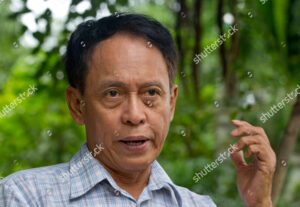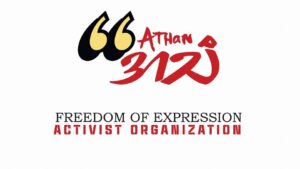Myanmar’s citizens go to the polls Sunday in an effort to sustain the fledgling but backsliding democracy they helped install just five years ago. There are about 37 million registered voters, though turnout is expected to suffer because of a recent surge in coronavirus cases, AP reports:
In 2015, excitement was high over the opportunity to end more than five decades of army-directed rule. The National League of Democracy party of Nobel Peace Prize laureate Aung San Suu Kyi roared to a landslide election victory, and she became her country’s leader after many hard years at the forefront of a non-violent struggle against military dictatorships that won international admiration.
But the fact that the health of Myanmar’s democracy remains so linked to a single woman has frustrated many politicians, who accuse the National League for Democracy of failing to build the kind of institutions needed for democracy to fully take root in the country, The Times notes.
“We have sacrificed our lives to have a democratic country, but now we are losing hope because of the ruling party,” said U Ko Ko Gyi, a former student leader and political prisoner for 17 years. He formally broke from Ms. Aung San Suu Kyi last year and formed the People’s Party, which is fielding candidates for the first time on Sunday.
Critics accuse 75-year-old Suu Kyi and her party of being more concerned about entrenching itself in power than encouraging a broad-based democracy, The Post adds.

Shutterstock
“This time, neither Aung San Suu Kyi nor her party is bringing democracy to Myanmar. Instead, they are trying to bring in a one-party democracy system,” charged Khin Zaw Win (right), director of the Tampadipa Institute, a Yangon-based policy advocacy group.
Civil society groups have found dozens of networks of accounts, pages, and groups spreading ethnically and religiously charged falsehoods they fear could lead to strife and undermine the second election since the end of hardline army rule in 2011, adds Reuters, which separately found more than two dozen inter-connected pages and accounts with a combined reach in the hundreds of thousands. The majority were removed after Reuters flagged them to Facebook.
“There’s a short-term immediate concern of all this disinformation and hate speech fuelling real-world violence,” said Jes Kaliebe Petersen, CEO of tech hub Phandeeyar, part of the Myanmar Tech Accountability Network (MTAN), a civil society group coordinating efforts to reduce risks posed by social media. Harmful content, he said, is “spreading like wildfire”.
The NLD will be competing for votes against 90 ethnic minority and other parties, led by the pro-military Union Solidarity and Development Party, which it defeated in 2015, The FT reports.
“A lot of people will see the NLD as the only choice if they want to continue along with the democratic transition,” said Moe Thuzar, co-ordinator of the Myanmar Studies Programme at ISEAS-Yusof Ishak Institute in Singapore. “Many people don’t want a return of anything that reminds them of military rule.”
 Even in areas where Ms Suu Kyi has unfettered authority, she is no liberal, The Economist reports:
Even in areas where Ms Suu Kyi has unfettered authority, she is no liberal, The Economist reports:
Ms Suu Kyi’s authoritarian streak extends to the government’s relations with civil society. It has repeatedly attempted to muzzle its critics in court. In 2017 two Reuters journalists, investigating violence against the Rohingyas, were sentenced to seven years in jail for breaking a colonial-era national-security law. According to local watchdog Athan (‘voice’ in Burmese), the government has filed 251 suits against its critics, twice as many as under the previous army-backed government.
“Discipline-flourishing democracy is the only game in town,” says Ian Holliday of the University of Hong Kong.
Fears over coronavirus may also deter some people from going to the polls. Aung San Suu Kyi decided to push ahead with an election despite a rise in cases in August, says The Guardian.
“A lot of people including myself would have liked her to postpone the elections for just a month,” said Tampadipa Institute director Win. Restrictions imposed to curb the outbreak have made it harder for smaller, ethnic-based parties, which lack access to state-based media, to carry out campaigning.
False start – Aung San Suu Kyi was supposed to set Burmese democracy free https://t.co/6KhlDDvKnC
— Democracy Digest (@demdigest) November 5, 2020







